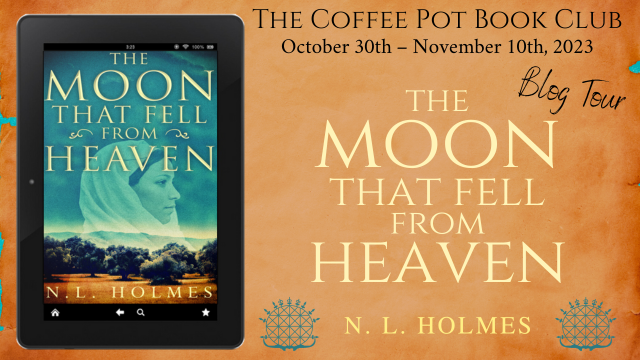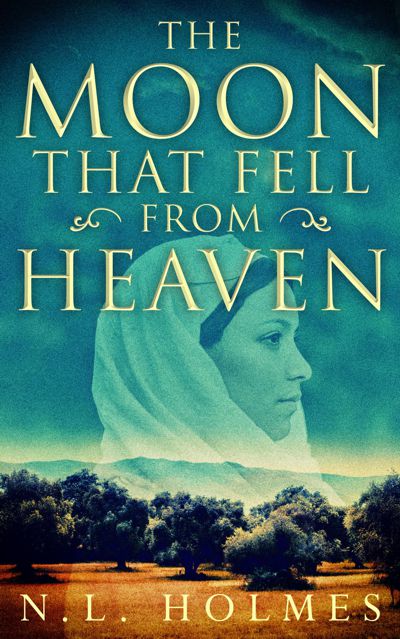
Ehli-nikkalu, eldest daughter of the Hittite emperor, is married to a mere vassal of her father’s. But despite her status, her foreignness and inability to produce an heir drive a wedge between her and the court that surrounds her. When her secretary is mysteriously murdered while carrying the emperor a message that would indict the loyalty of his vassal, Ehli-nikkalu adopts the dead man’s orphaned children out of a guilty sense of responsibility.
A young cousin she has never met becomes a pretender to the throne and mobilizes roving armies of the poor and dispossessed, which causes the priority of her loyalties to become even more suspect. However, Ehli-nikkalu discovers a terrible secret that could destabilize the present regime if the pretender ever learns of it.
With the help of a kindly scribe, her brave young ward, and an embittered former soldier trapped in debt and self-doubt, Ehli-nikkalu sets out to save the kingdom and prove herself to her father. And along the way, she learns something about love.

Ugarit, the mighty midget of the Late Bronze Age
My research began eleven or twelve years ago when I taught a course at the University of South Florida called Ancient Near Eastern Empires. Its main focus, of course, was the big players like Egypt and the Hittite Empire, but there’s no way to understand the dynamics among such polities without looking at border zones like Ugarit. This seaport and caravan terminus in northern Syria (near modern Latakia) wielded disproportionate influence because of its wealth. Sometimes a vassal of Egypt and sometimes of Hatti, they almost singlehandedly provided the navy of their Hittite masters, a landlocked power.
Having always been interested, both personally and professionally, in this part of the world, I had studied Hebrew and Arabic and found the Ugarites, with their closely related Semitic language, a fascinating bunch. My class looked briefly at the culture and art of the place, but then we got into the snippets of diplomatic correspondence that had survived the fiery downfall of the city in the early twelfth century BCE. That’s when my eyes really lit up.
Modern historians are indebted to the violent end of Ugarit, because the conflagration that spelled a permanent finish to its habitation also baked the clay tablets that made up its archives. Piecemeal and random though they are, they have given us incomparable glimpses into the diplomatic doings of Ugarit and its neighbors near the end of its days. One of the most interesting events, described partially in a number of different fragments, was King Ammishtamru’s divorce from his Amurrite queen, a Hittite princess through her mother. What on earth had she done, that such a prestigious princess would be cast off? It turns out there were inklings of sedition… and adultery. At first she was sent home to neighboring Amurru. But then the king extradited her and had her put to death. Their small son had to relinquish any claim to the succession.
Wow! Since you’re a historical fiction fan like me, no need to tell you how my juices started flowing. You couldn’t have made up a more dramatic plot! While there wasn’t much flesh I could put on those bones as a historiographer, as a fiction writer, I could see whole new worlds opening up! As soon as I retired from the classroom, I sat down to write that story, told through the viewpoint of the queen’s eunuch chamberlain. It became The Queen’s Dog, the first (although not chronologically) in the Empire at Twilight series, which traces the final generations of the Hittite Empire through a diverse array of protagonists.
But Ugarit had other good things in store for me. In addition to the political archives, archaeologists have found a trove of musical texts, the earliest ever seen. They represent chiefly four composers from the kingdom of Mitanni, in inland Syria. By the time of Ugarit’s fall, Mitanni and its Hurrian-speaking inhabitants were no longer a world power, but the many refugees who had fled to the coast brought its cultural influence west. It seems to have been the mother-culture of the musical sphere, much like Italy in today’s music, where all the term are Italian. I hit up the ancient musicology books to see what had been reconstructed, and it was a lot. Enough to imagine the story of a Mitannian singer fleeing her falling homeland and taking up her career in Ugarit… And that was the origin of The Singer and Her Song.
We could mention here as well the trove of literary texts that excavations in our city by the sea have revealed, opening up a whole new world of Canaanite poetry and mythology. Scholars immediately noted the similarity with the literary forms of the Bible, a sister culture. Ili-milku, a protagonist of The Moon That Fell from Heaven, is a real person, the author of an epic poem called the Ba’al Cycle.
So three of the five books in the Hittite series take place in Ugarit. Strange? Not so much, since an empire is by definition an extensive group of states ruled over by a single monarch. Our little city state had its own kings, but they were vassals to the “Great King” in Hattusha. Ugarit was important not only to the economy of its overlords, but even to their cultural identity. If I can bring it to the notice of a wider public through historical fiction, I consider it an honor.
Universal Link: https://books2read.com/u/mdqeeX
Amazon UK: https://www.amazon.co.uk/Moon-That-Fell-Heaven-ebook/dp/B0CGP7B5ML/
Amazon US: https://www.amazon.com/Moon-That-Fell-Heaven-ebook/dp/B0CGP7B5ML/
Amazon CA: https://www.amazon.ca/Moon-That-Fell-Heaven-ebook/dp/B0CGP7B5ML/
Amazon AU: https://www.amazon.com.au/Moon-That-Fell-Heaven-ebook/dp/B0CGP7B5ML/
Barnes and Noble: https://www.barnesandnoble.com/w/the-moon-that-fell-from-heaven-n-l-holmes/1143996343?ean=9781958231340
Kobo: https://www.kobo.com/ww/en/ebook/the-moon-that-fell-from-heaven
Meet N.L. Holmes

N.L. Holmes is the pen name of a professional archaeologist who received her doctorate from Bryn Mawr College. She has excavated in Greece and in Israel and taught ancient history and humanities at the university level for many years. She has always had a passion for books, and in childhood, she and her cousin used to write stories for fun.
These days she lives in France with her husband, two cats, geese, and chickens, where she gardens, weaves, dances, and plays the violin.
Connect with N.L.
Website: https://www.nlholmes.com/
Facebook: https://www.facebook.com/nlholmesbooks
LinkedIn: https://www.linkedin.com/in/n-l-holmes/
Twitter: https://www.twitter/nlholmesbooks
Instagram: https://www.instagram.com/n l.holmes/
Tumblr: https://www.tumblr.com/blog/nlholmes
Pinterest: https://www.pinterest.com/nlholmesbooks/
Book Bub: https://www.bookbub.com/authors/n-l-holmes
Amazon Author Page: https://www.amazon.com/N-L-Holmes/e/B0858H3K7S
Goodreads: https://www.goodreads.com/author/show/20117057.N_L_Holmes